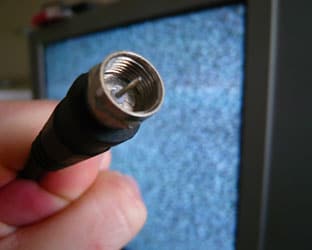In the broadcasting business, artists, union members and company executives do not always see eye to eye. But the possibility that the FCC may allow unlicensed devices to be unleashed into the television spectrum prematurely has demonstrated that the occasional adversaries also share some common interests. Over 100 performing artists, exactly the type often heard over the radio, asked the FCC to slow down to properly assess the interference potential to live performances. AFTRA also weighed in with performance and newsgathering concerns. Meanwhile, NAB President/CEO David K. Rehr, noted that the FCC’s own study shows that the interference protections tested thus far have been proven inadequate, and that precedent demands a public comment period.
The artists, who include acts like Neil Diamond, the Dixie Chicks, Clay Aiken and Guns N’ Roses, wrote "Shows in 60,000 seat stadiums, or 20,00 seat arenas, or even 250 seat nightclubs would be brought to a screeching halt every time one of these new devices requires a sensing ‘patch.’"
AFTRA’s Terrie Bjorklund wrote, "We urge the Commission to give due consideration to the detrimental impact changes to the frequency band relied on by wireless microphones will have on the media and entertainment industry and to resist making any quick decisions before providing adequate time for public comment."
NAB claims that the FCC’s own report “shows that spectrum-sensing technology is inadequate and threatens the viability of interference-free television.” Rehr said a comment period is in order, and added, "The American public deserves transparency and due process, especially here, where the consequences of adopting rules without full consideration could mean that millions of unlicensed devices with the potential to disrupt television reception could be sold to unsuspecting citizens.”
RBR/TVBR observation: Former NAB President/CEO Eddie Fritts always used to remind the powerful in Washington of their responsibility to make sure they do no harm before taking an action. The FCC needs to take that advice to heart, right now.




